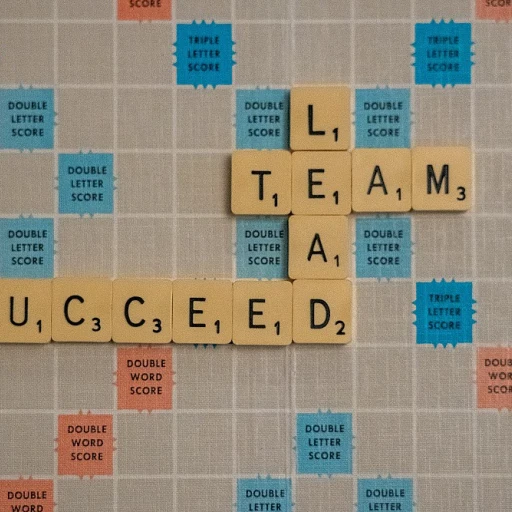
Understanding Succession Planning
Unveiling the Essence of Succession Planning
Succession planning is an essential element in ensuring the longevity and resilience of any organization. It involves strategically identifying and developing internal talents to fill key leadership roles within the business. This practice is not just about filling the top positions but also about creating a robust internal pipeline of talent that can effectively lead the organization into the future.
The concept of succession planning is not new, but its implementation can often be complex, requiring a deep understanding of organizational dynamics, leadership development, and talent management. By systematically addressing these elements, businesses can safeguard against potential disruptions and ensure smooth transitions during critical leadership changes.
One of the key aspects of succession planning is recognizing that it's not a one-size-fits-all approach. Organizations need to adapt their strategies to their specific needs and goals while keeping in mind the broader scope of organizational development. This process often requires the expertise of experienced consultants at every step, ensuring that the human aspect of leadership transitions is adequately addressed.
Another vital component is integrating data analysis and performance management systems into the succession planning process. By leveraging technology and data, organizations can better forecast future needs, identify potential skills gaps, and align their leadership development programs accordingly. This allows businesses to not only prepare for upcoming vacancies but also to foster a culture of continuous growth and organizational effectiveness.
Moreover, succession planning should incorporate elements of change management and employee engagement. As organizations evolve, so too must their leadership capabilities. Facilitating education, executive coaching, and mental health support ensures that future leaders are not only equipped with the necessary skills but are also resilient and adaptable to change.
In summary, understanding the core principles of succession planning lays the groundwork for organizational stability and growth. As we delve deeper into other facets like leadership skills development and overcoming common challenges, it's clear that a comprehensive and dynamic approach is crucial for any organization aiming to maintain its competitive edge and sustain its operations in the long term.
The Role of Organizational Development Consulting
The Vital Influence of Strategic Guidance
Organizational development consulting plays a crucial role in crafting an effective succession planning strategy. These consultants bring expertise in change management and human resources, offering targeted services that align with the specific needs of a business. They assist organizations in navigating the intricate landscape of leadership development, ensuring a seamless progression from one generation to the next.
The consultants' strategic guidance helps balance human-centric changes with technological and data-driven approaches. By leveraging performance management tools and data analysis, development consultants provide invaluable insights into the organization's current talent pool. This helps to identify potential leaders and craft career paths that enhance organizational effectiveness.
Comprehensive Approach to Transformation
A successful succession plan involves more than simply filling vacancies. It requires a thorough understanding of the organization's long-term goals and how emerging leaders can contribute to these objectives. Organizational development consultants employ a holistic method, combining leadership skills training, executive coaching, and talent management programs to prepare candidates for future roles.
They also focus on creating supportive environments that promote employee engagement and mental health. By supporting individuals in their professional growth, these development programs not only prepare the next generation of leaders but also ensure the continuity of business operations.
Additionally, exploring opportunities in board of directors roles can further strengthen the leadership pipeline. Such opportunities provide emerging leaders with valuable insights and experiences that can be pivotal in their development journey.
Identifying Key Positions and Talent
Pinpointing Critical Roles and Future Leaders
Identifying key positions and talent within an organization is a fundamental step in succession planning. It involves recognizing the critical roles that are essential for business continuity and determining which individuals possess the potential to step into these roles. This strategic endeavor both safeguards the organization from unexpected vacancies and ensures a pipeline of skilled leadership to drive future success. One of the primary tasks for organizational development consultants is to assist management in mapping out these pivotal positions. By leveraging data-driven insights and performance management systems, consultants help organizations pinpoint roles most vital to their strategic goals. This exercise typically involves an in-depth data analysis to understand where the potential skills gaps might lie within the current workforce. Furthermore, these consultants play a crucial role in talent management. They work closely with human resources to identify employees who demonstrate high potential and align with organizational values and goals. Developing a robust talent management strategy not only enhances employee engagement but also supports mental health and well-being by demonstrating a clear path for career advancement. To achieve organizational effectiveness, it is essential to incorporate a comprehensive human resources program. This includes a mix of leadership development initiatives, executive coaching, and tailored education efforts that are designed to mold the leaders of tomorrow. By focusing on these areas, organizations can foster a culture that encourages professional growth and continuous learning. Another critical element is the integration of technology and online platforms to facilitate better training and user experience for both employees and management. These digital tools support change management by offering interactive modules and real-time feedback, ensuring ongoing development of leadership skills across the board. Ultimately, the success of pinpointing key positions and cultivating the talent pool hinges on the close collaboration between development consultants and business organizations. By aligning these efforts with larger organizational goals, consultants ensure that succession planning is not just a reactive measure but a proactive strategy that bolsters sustained business growth and resilience.Developing Leadership Skills
Equipping Future Leaders through Targeted Training
In the process of succession planning, one of the critical components to ensuring business continuity is developing leadership skills. As organizations strive to prepare for future transitions, the focus should be on identifying and nurturing potential leaders through comprehensive leadership development programs. By doing so, they can equip individuals with the necessary tools to thrive in higher roles and responsibilities. Organizational development consultants play an essential role in this endeavor by designing tailored programs that align with the unique needs and goals of the business. These programs often encompass a variety of educational and experiential learning opportunities. From executive coaching to immersive workshops that emphasize change management, the goal is to mold versatile leaders who can adapt to the evolving business landscape. Moreover, training initiatives should harness the power of technology and include modules on the latest management systems and practices. This ensures that emerging leaders are not only adept in traditional leadership skills but are also prepared to leverage data analysis and organizational systems to drive performance and organizational effectiveness. The value of leadership development is further strengthened by integrating elements of mental health and employee engagement. By promoting wellness and fostering a positive work culture, organizations can cultivate motivated leaders who are capable of leading with empathy and effectiveness. Ultimately, equipping future leaders involves a commitment to a consistent learning journey. It requires collaboration between organizational development consultants, human resources, and the leadership team to create a dynamic and supportive environment where potential leaders can flourish. This ongoing commitment is integral to ensuring that an organization is always ready for future challenges, further securing its continuity and success.Overcoming Challenges in Succession Planning
Navigating Succession Planning Challenges
Succession planning, although crucial for business continuity, comes with its own set of challenges. Understanding these obstacles and addressing them effectively can make a significant difference in the success of your organizational efforts. Let's explore some of the common hurdles businesses face and how they can be overcome through organizational development consulting.
Resistance to Change: Many organizations encounter resistance from employees when implementing succession planning programs. People often fear the change management process and potential career disruptions. To tackle this, executive coaching and organizational development services can help in fostering a change-ready culture, where employees are encouraged to view change as an opportunity rather than a threat.
Identification of Potential Leaders: Identifying the right individuals for future leadership roles requires meticulous data analysis and talent management. Unfortunately, some organizations struggle with recognizing potential leaders. Development consultants use sophisticated data systems and performance management strategies to ensure that the right talents are recognized and nurtured.
Maintaining Organizational Effectiveness: Another challenge is maintaining business continuity while grooming future leaders. A delicate balance between current human resources needs and future organizational development is essential. Consultants organizational can provide tailor-made consulting services to achieve this balance and ensure that your employee engagement doesn't falter during succession.
Developing Versatile Leadership Skills: It is imperative for future leaders to possess a diverse skill set to handle various aspects of the business environment. Leadership development programs, bolstered by insights from organizational development consultants, enable potential successors to adapt to changing business landscapes.
Measuring Career and Program Success : Lastly, evaluating the efficacy of your succession planning initiatives can be complex. Utilizing advanced data analytics and feedback systems will provide concrete insights into program success and career growth. Regular reviews and adjustments based on performance data ensure that the succession planning remains aligned with organizational goals.
Ultimately, overcoming these challenges requires a cohesive strategy that involves organizational commitment, management support, and expert consultancy. By addressing these issues proactively, businesses can pave the way for a seamless transition and long-lasting organizational success.
Measuring Success and Continuity
Evaluating Succession Planning Effectiveness
To ensure your succession planning efforts make a tangible impact on your organization, it's important to measure success and continuity. Here’s a guide on what metrics to consider and how organizational development consultants can facilitate this process.- Implementation Assessment: Start by analyzing how well your succession strategies were implemented. Consider engaging organizational development consultants to assess if the processes introduced align with your broader organizational goals and if they are being followed consistently across departments.
- Leadership Continuity: Watch for smooth transitions when key leaders retire or leave. Consistency in leadership is a sign that your succession planning is effective. Organizational development programs often include leadership development initiatives that prepare future leaders well in advance.
- Talent Mobility & Retention: Keep track of internal promotions. If higher-level positions are frequently filled by external hires, there may be gaps in your current succession planning. Additionally, monitor employee engagement—high retention rates suggest that your development plans align with employee expectations and career aspirations.
- Skills Development & Leadership Growth: An effective plan should foster leadership skills at every level of your organization. Regularly evaluate the upskilling and training programs you have in place to ensure they support both current efficiency and long-term business continuity.
- Integration with Organizational Development: Ensure that your succession planning is not just for crisis management, but interwoven with broader organizational development strategies. Using technology-driven data analysis, measure how well your plan integrates with current performance management systems to support ongoing development needs.
- Feedback & Improvement: Gather feedback from participants in leadership development programs and conduct surveys to measure user experience. This data fuels meaningful adjustments and improvements, engaging employees, and strengthening the overall succession framework.













